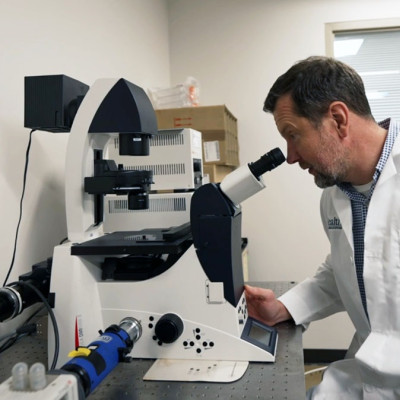Though flu vaccines are readily available to the public, they need to be remodeled and administered every year to combat new viral variants, which can undermine vaccine efficacy. Because of this, scientists have aimed to develop a universal vaccine that can protect against all influenza strains, and that can last for many years.
Now, researchers at the National Institute of Allergy and Infectious Diseases (NIAID)’s Vaccine Research Center (VRC) and the University of Washington School of Medicine’s Institute for Protein Design (IPD) developed a universal flu vaccine candidate using small particles (nanoparticles), which can induce a long-lasting immune response.
In the study, published in the journal Nature, the researchers showed that computationally designed, two-component nanoparticle immunogens induced potently neutralizing and broadly protective antibody responses against a broad range of influenza viruses.
Study background
To provide full protection against flu, people should get re-vaccinated each year. The influenza virus continuously mutates, particularly in its hemagglutinin (HA) surface protein. This is the protein that the immune system recognizes as harmful, prompting the production of antibodies.
A majority of flu shots available today are quadrivalent, which means they are made from four various flu strains. Every year, the World Health Organization (WHO) estimates which four trains will be most prevalent, and their predictions can vary in accuracy. As a result, pharmaceutical companies that produce vaccines may end up with mismatched flu shots. Though these vaccines are still helpful, they only offer partial protection.
More than ever, there is a need for next-generation flu vaccines that are safe and effective. A universal flu vaccine could protect against existing flu viruses, as well as several more strains that existing vaccines do not cover sufficiently.
The study
The study described how the new flu vaccines were developed, an experimental vaccine designed to trigger antibodies targeted to HA proteins from four seasonal flu virus strains.
The new vaccine differs from already available flu vaccines since the HA antigen components are arranged in a repeating pattern on scaffolds made by self-assembling nanometer-sized particles. A nanometer is about one-billionth of a meter, which is smaller than a human hair that is 90,000 nanometers wide.
To create the vaccine, the team attached hemagglutinin proteins from the four seasonal flu virus strains to protein nanoparticles. The approach paved the way for the scientists to have control over the molecular configuration of the vaccine, resulting in an enhanced immune response compared with commercially available flu shots.
To assess the vaccine’s efficacy, the team tested the nanoparticle vaccine in mice, ferrets, and non-human primates. Then, they compared the immune responses to those induced by a commercially available flu vaccine. Both vaccines contain the four human flu virus strains.
The team found that the new vaccine-elicited neutralizing antibody responses, which is similar to that of commercial vaccines in animals, such as ferrets, mice, and non-human primates.
Further, the new and improved vaccine-induced protective antibody responses to viruses not contained the vaccine formulation. It protected against influenza vaccine subtypes H5 and H7, which usually infect birds and may trigger a human influenza pandemic.
Commercial vaccines cannot protect from other strains of viruses, other than the four viral strains in the formulation.
To date, scientists are working on testing the vaccine on humans in clinical trials. If the vaccine is proven safe and effective, the public may have a universal flu vaccine that offers robust and durable protection.
Read the original article on News Medical.







